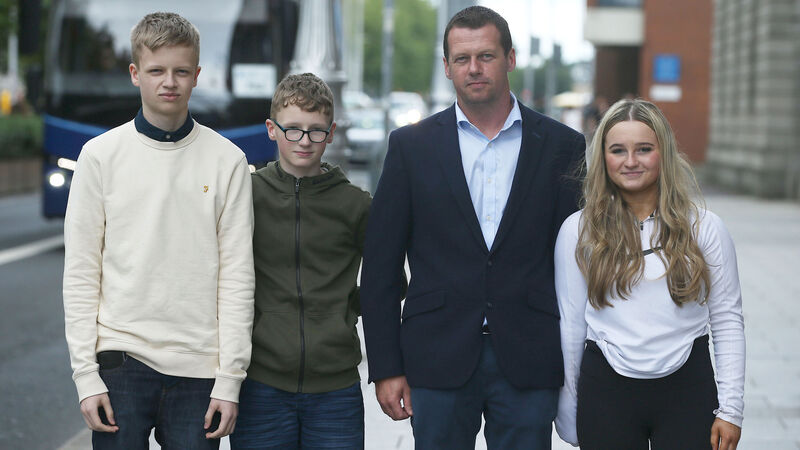Tipperary man wins Supreme Court challenge to his exclusion from widower's pension

John O'Meara and his children Aoife, Jack and Tommy at a previous court hearing. They had launched an appeal against the refusal by the Minister for Social Protection to grant the pension following the death of Michelle Batey, who was Mr O'Meara's partner of about 20 years and the children’s mother. File picture: Collins Courts
A Tipperary man who went all the way to the Supreme Court over his exclusion from the widower’s contributory pension because he never married his late long-term partner has won his case.
The Supreme Court ruled that John O’Meara from Nenagh, Co Tipperary, is entitled to the pension and it unanimously granted an order quashing the 2021 decision to deny him the pension.













